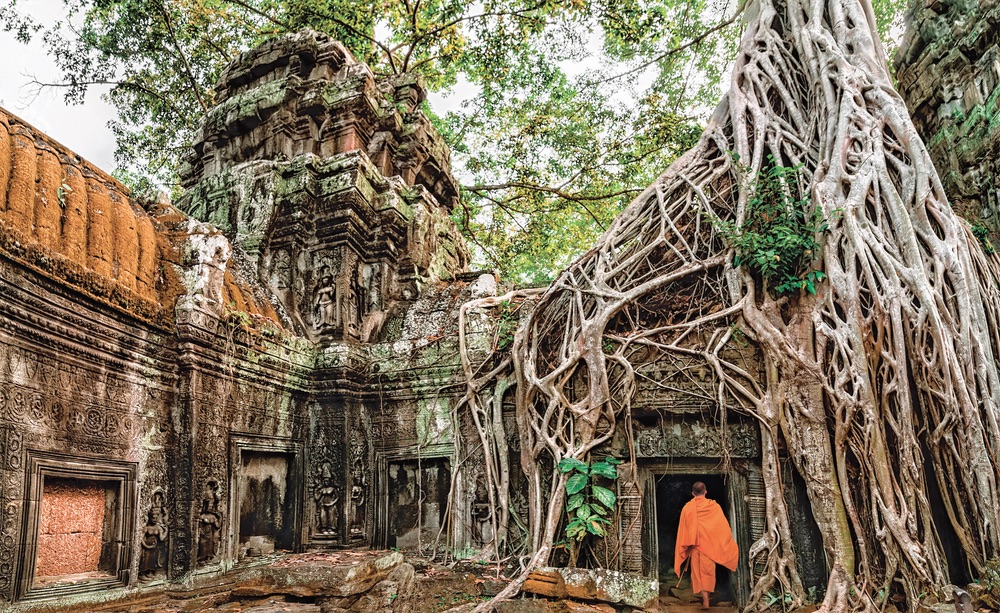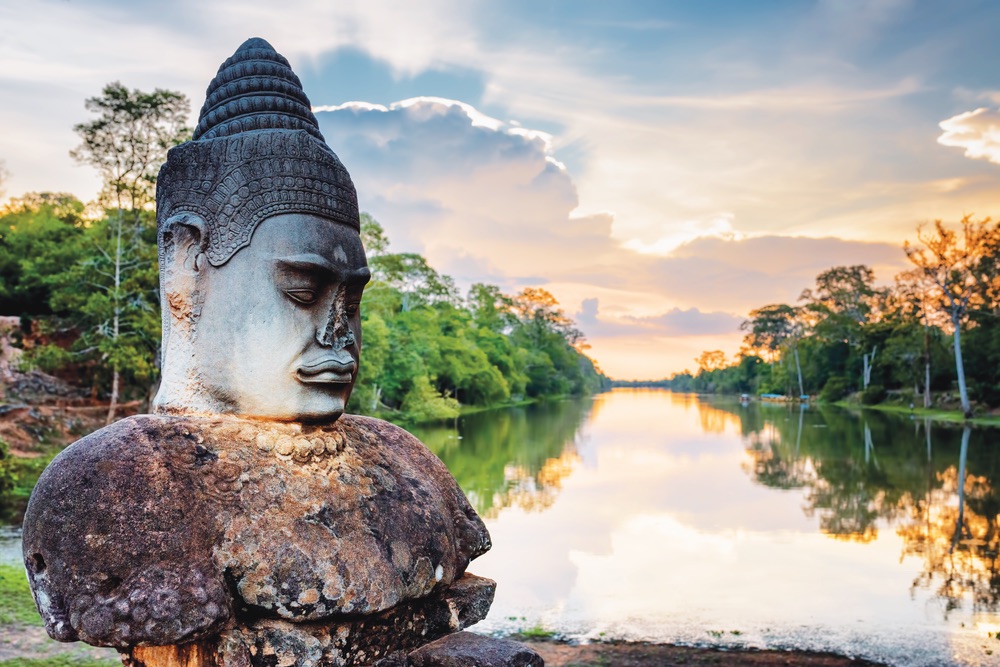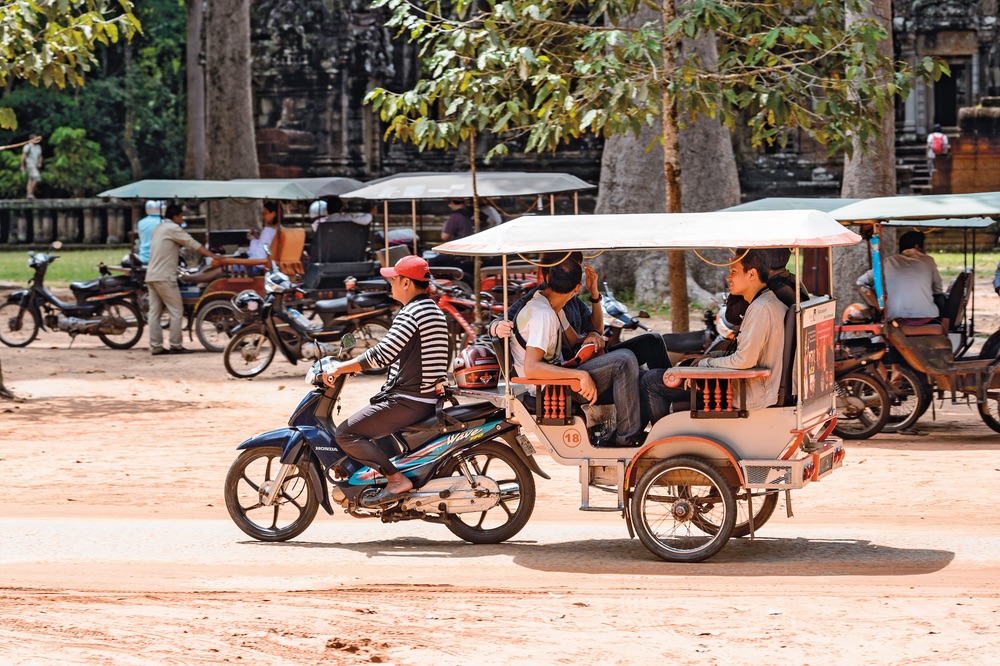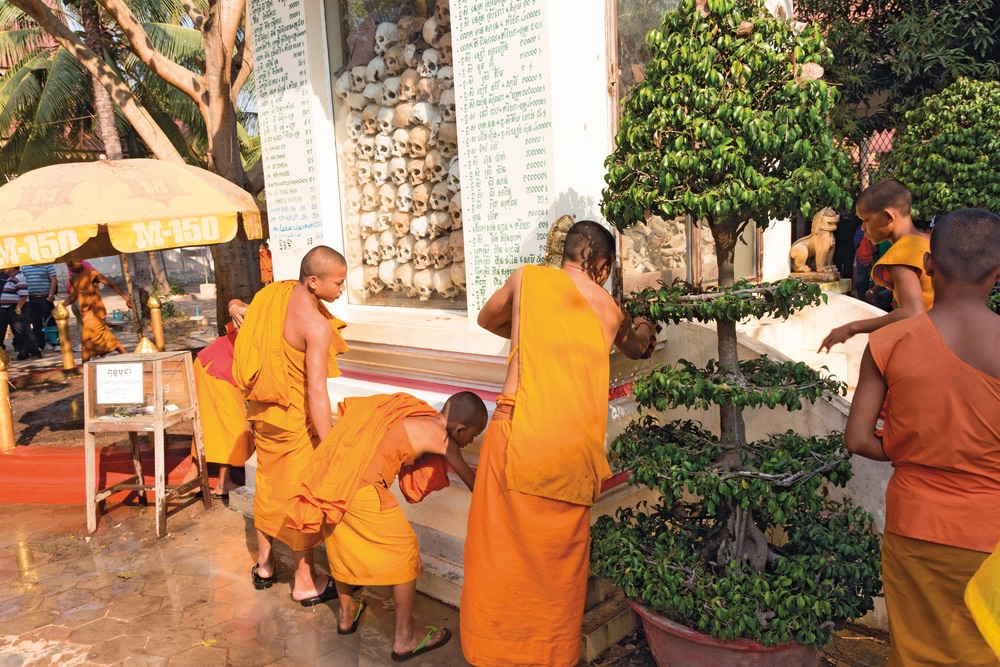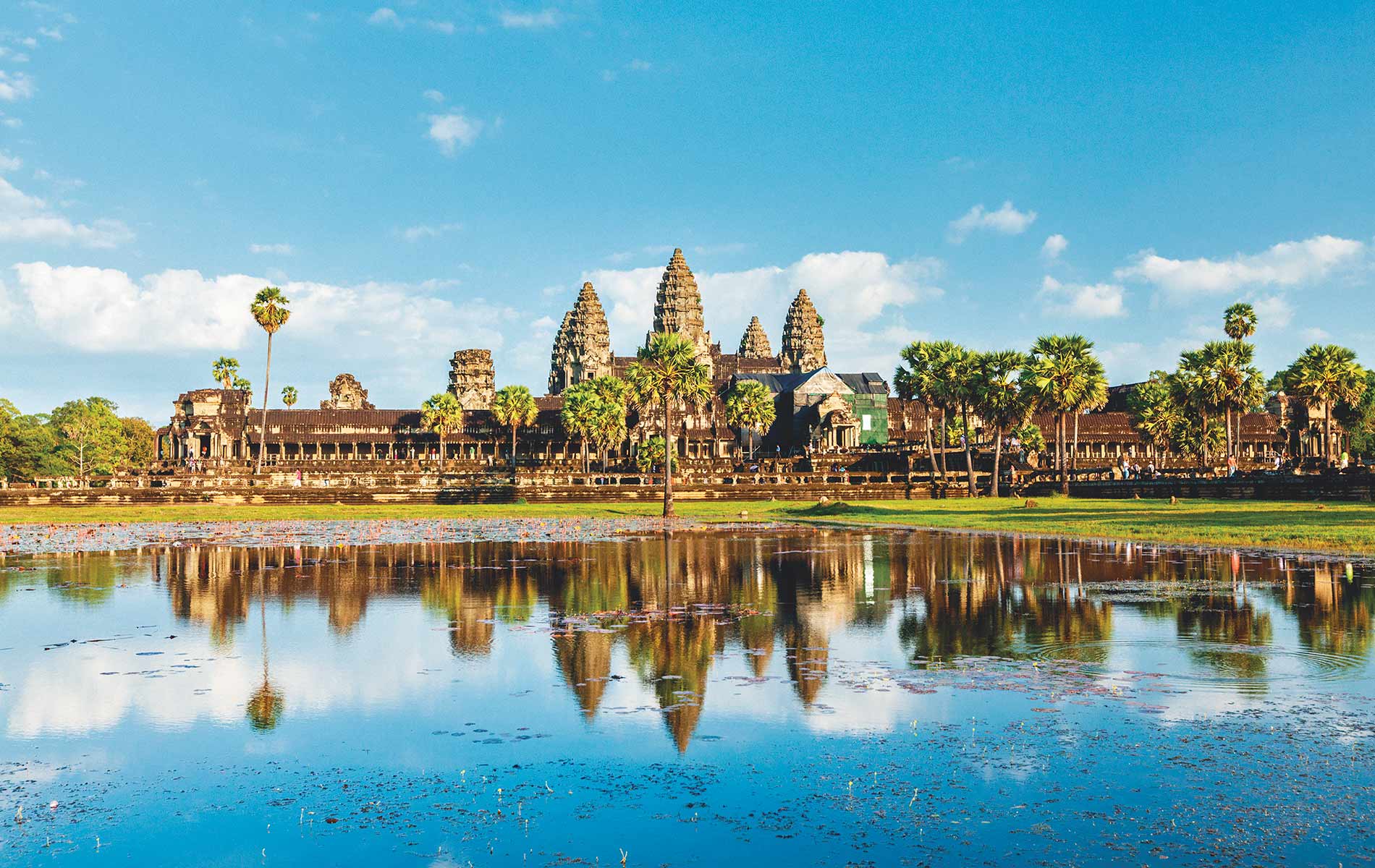
vie-magazine-malaysia-hero
An Insignificant Adventurer
By Lizzie Locker
Adventure is a grossly misused term, in my opinion. As an American, if you travel overseas at all, people call it an “adventure”—as if that selfie at Machu Picchu is something heroic or admirable. But that word is cheapened in such a context. For me, adventure implies great risk, great vulnerability, the highest of stakes. It implies achievement. Overseas travel merely implies having an excess of money and free time.
I’ve been quite a snob about that word, adventure. (What’s “adventurous” about standing under the Eiffel Tower?!) In actuality, I am secretly jealous of others’ travels. But in my jealousy and snobbery, I failed to make a distinction between what is adventurous and what is not: who gets to decide what “great risk, great vulnerability, and highest of stakes” is? Is it me, sniping away about someone’s Tinder profile picture—a perfectly staged selfie-stick masterpiece from the Sydney Opera House? Or is it the man in the picture himself, who, until that journey, had never before been brave enough to board an airplane?
Adventure may be grossly misused, but risk is too narrowly defined.
The details of my mental health are neither of import to this story nor of interest to you, so let us simply call them ailments. They are small, mostly—the sorts of things that many people possess: little quirks and anxieties—faulty wirings in the body and the brain, which spark and ignite under pressure. In the last two years, I am always putting out fires within myself, it seems. Winter is always hard. Fighting imaginary fires in the dark and the cold is more difficult, for some reason. And this winter was the darkest I can remember, both for myself and the people I love. By January the fires were incessant, overwhelming—made worse by real shouting in the streets and threats of far worse, friends on suicide watch, the unending debates on how exactly the world would end, and how soon.
But there was an unexpected escape route which presented itself, and the hope of it got me through. My semiretired father spends several months out of the year traveling throughout Southeast Asia, and as a long-belated graduation gift he offered to take me with him. We’d hop across the Pacific and bounce around from Singapore to Indonesia to Cambodia to Laos, and I would be the captain of our voyage.
We’d hop across the Pacific and bounce around from Singapore to Indonesia to Cambodia to Laos, and I would be the captain of our voyage.
That trip promised me a lot. It promised to be a welcome reprieve from the doom and gloom that seemed to hover over my home in San Francisco, a welcome rest from red-faced political pundits and violence and hatred. It would be a chance for me to be myself again, to shake me out of my ailments and back into the bright, excited, passionate person I had always been.
Except that it wasn’t. Not in the least.
The ugliness I had hoped to hide from was waiting for me, even on the other side of the world. Every headline, every news channel, in every country and language—they all showed what I had hoped to avoid looking at for a while, what I had hoped would be uninteresting to the people in another land. Even the official mascot of the Lunar New Year, a giant cartoon rooster, had an outlandish yellow pompadour, as if to celebrate what my hippie bleeding heart was still mourning.
And while I was trying to escape the fires around me, trying to simply enjoy my vacation, there were still fires going up inside me. Due to freak weather, my father’s flights were delayed by an excruciating two days, and I found myself unexpectedly alone in a foreign country, with no money to pay the guesthouse where I was staying and with no guarantee of when—or even if—my father would arrive. When he finally did show up in the wee hours of a muggy tropical night, his luggage lost and his patience shot, we suddenly realized it had been more than a decade since we had spent even a weekend together. We had to relearn how to communicate, how to live with one another’s presence, how to shout across the gap when bridging it proved impossible.
All very small crises, in the grand scheme of things. Little fingers prodding, pushing buttons just to see what happens.
The ailments flared and flamed, even as we wandered through museums and gardens and temple complexes. I couldn’t fight them all at once, and the only person I had to rely on was unequipped to help me. Calm down. I’m not mad; you’re mad. What’s wrong? You should just relax. You’re overreacting. You’re on your period. I don’t do well with crying women. What’s wrong?
By the time we left Singapore for the wilder parts of Bintan Island, I was not myself. In a land ringing with the calls of parrots and calls to prayer, I fell entirely, unnaturally silent. In jungles blooming with exotic flavors and soaked in spices, I had no appetites or interests. Among the warm lights and exuberant colors, I was a speck of something frozen. I’d arrived on an island paradise and all I wanted was to go home to my messy room and cluttered life.
I felt utter desolation. I could not change what was wrong at home, and I could not escape it either. The ailments took things from me: I was too ill to eat, too weak to wander out and discover. I could not make myself better, and I could not teach anyone else how to help me. My father and I were together for the first time in years, and yet I felt more alone than I had before his arrival.
Worst of all, despite being blessed with the great privilege of international travel, I did not have the ability to enjoy or appreciate any of it. I had become that most loathsome creature, the damsel in distress. I was not on an adventure—I was just sitting around, hoping to be rescued.
And for my inability to save myself, I hated myself.
Something happened, though, in Cambodia.
When I had imagined entering the third world, I thought of it much like crossing a border—beware, ye travelers, for the world is very different here.
When I had imagined entering the third world, I thought of it much like crossing a border—beware, ye travelers, for the world is very different here. But the experience of arriving there felt more like sinking, or settling deeper into something. I didn’t feel better immediately—I didn’t feel better at all, actually. But for some reason, the puttering motorbikes and tuk-tuks (three-wheeled motor vehicles used as taxis) and red, dusty roads felt more solid than the sparkling transit systems and viaducts and highways of Singapore. I felt not better, but stronger. The earth beneath my feet, at least, felt like it would hold me.
Singapore had felt safe; Cambodia did not. We left the city limits of Siem Reap for the emerald rice paddies and the cocoa-colored rivers beneath houses on stilts, places where English was not spoken, where we were not met with placating smiles and bows but with hard, distrustful eyes and impatient scowls. There were no other tourists here, no proof that our presence was appropriate. On one particular morning, we were meant to be going to a “floating forest” near Tonlé Sap, yet it seemed that we were being passed from hand to hand like unwanted baggage: our tuk-tuk driver handed us off to a riverboat, who handed us off to a floating restaurant, who handed us off to woman in a canoe, and with every pass my father had to pull another bill from his wallet. We were at the mercy of strangers whose language we could not understand, who regarded us with suspicion, entirely vulnerable and exposed and alone, miles from help.
We were at the mercy of strangers whose language we could not understand, who regarded us with suspicion, entirely vulnerable and exposed and alone, miles from help.
Each time we went out like this was thrilling. To feel so small, so weak, and so completely fragile as I was then and to willingly walk into a dangerous place, confront the perceived danger, and walk away unscathed yet different was empowering somehow. Perhaps I was a silly white lady carried away by her nerves and emotions, an empty-headed American who perceived danger in difference. Perhaps we unknowingly avoided some horrible fates. It may have been an insignificant kind of adventure we were on, but I found it somehow necessary to call it an adventure just the same.
I marked the difference in myself one night as we drank cheap local drafts on Pub Street in Siem Reap. My appetite was creeping back, I made conversation with passing Australian tourists, and for the first time since I had left home, I slept through the night.
I was not “better” by a long shot, but when you are always cold, a little heat goes a long way. You don’t worry about tomorrow; you just say thank you for the good day and hope for another.
Whereas I would have had to seek out risks in Singapore and Indonesia, danger was not hard to come by in Cambodia—or the specter of it, at least. One cannot walk over the Killing Fields or stand in the shadow of Angkor Wat’s blackening towers without that jabbing twist in the gut, that knowledge of your own insignificance and fragility. It feels like danger, but mostly I think it is shame: shame when the miseries of others are set beside our own perceived ones; shame that we ever thought we had something to fear; shame that in comparison to something so great and terrible, we ourselves are so very small and soft.
I don’t know why I was compelled to touch every stone, walk through every portal, kneel before every statue of the Buddha.
I clambered over the ruins of countless temples, scraping my hands and catching my skirt on stones. I don’t know why I was compelled to touch every stone, walk through every portal, kneel before every statue of the Buddha. The actions felt ritualistic, like the sign of the cross and genuflection, all those Catholic motions from my childhood that stick to me—do these things and you will be made better.
I can’t remember its name, but it was the largest temple we saw, and I climbed the steep steps to the top, alone, just because I was afraid to.
At the top, my head felt light and dizzy. My muscles shivered. I felt soft as a feather and just as difficult to hold onto when the breeze blew. My breath came in little gasps, sweat soaked through my clothes, and the heavy clouds in the steely sky pressed down on me. I looked up so that I would not have to look down.
At the top of this temple, there was just me, a little spot of yellow and white against the sandstone. And just above me was a cluster of black-and-yellow-striped dragonflies, hovering. They were just blips in time and space, utterly insignificant.
That experience doesn’t matter much in the grand scheme of things, but it matters to me. I climbed up to the top of an ancient temple because I was afraid to, saw a kind of dragonfly I’d never seen before, and then I climbed back down again.
Adventure is in the eye of the adventurer—in the winking eye of the camera lens as you snap that selfie-stick photo in front of the Sydney Opera House or stand beneath the Eiffel Tower.
I understand now. Adventure is in the eye of the adventurer—in the winking eye of the camera lens as you snap that selfie-stick photo in front of the Sydney Opera House or stand beneath the Eiffel Tower. Such moments might be insignificant to the universe, but they’re adventures nonetheless.
— V —
Lizzie Locker is a writer, instructor, and costume designer in San Francisco. She received her MFA in writing from the University of San Francisco, where she was also awarded a teaching fellowship. Lizzie is currently at work on her first novel.
Share This Story!
KEEP UP WITH THE LATEST STORIES FROM VIE



